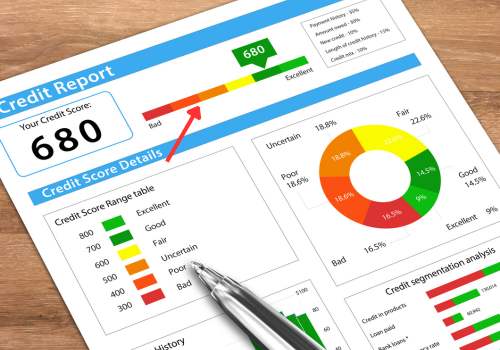13 Terrifying Consequences of Breaking Your Lease Too Soon
Picture yourself standing at your apartment door, boxes packed and ready to leave, when a certified letter arrives that makes your stomach drop.
You’re about to break your lease, and while it might seem like a simple matter of moving out early, the consequences can haunt you for years to come.
It’s not just about losing your security deposit or paying a few months’ rent – the ripple effects can touch everything from your credit score to your career prospects.
Before you turn in those keys ahead of schedule, you’ll want to understand exactly what’s at stake.

Legal Action From Landlord
A landlord’s most powerful recourse after a lease breach is pursuing legal action against you.
When you break your lease prematurely, your landlord can sue you for remaining rent payments, legal fees, and costs associated with finding a new tenant.
You’ll likely face a civil lawsuit in small claims court, where judgments can severely impact your financial future.
If your landlord wins the case, you’re looking at wage garnishment, bank account levies, or property liens.
The court judgment will appear on your credit report for up to seven years, making it difficult to rent another property or secure loans.
Additionally, you might be responsible for the landlord’s attorney fees and court costs.
Even if you’ve moved to another state, your landlord can pursue collection efforts across state lines through interstate legal proceedings.
Credit Score Damage

Breaking a lease can devastate your credit score, triggering a chain of negative consequences that persist for years.
When your landlord reports your lease breach to credit bureaus, it’ll appear as a serious delinquency, potentially dropping your score by 100 points or more.
You’ll face immediate challenges securing future housing, as landlords routinely check credit reports during tenant screening.
Additionally, you’ll encounter higher interest rates on loans, credit cards, and mortgages. Some employers even review credit reports during hiring, limiting your career mobility.
The negative mark stays on your report for up to seven years, affecting your financial freedom long after you’ve moved out.
To protect your credit, always negotiate with your landlord first and get any agreements in writing before breaking your lease.
Rental History Red Flags
When your rental history shows a broken lease, future landlords will view you as a high-risk tenant, making it exceptionally difficult to secure desirable properties.
You’ll find yourself facing increased scrutiny during rental applications, as property managers specifically look for lease violations in your rental history.
Most landlords maintain detailed records of early lease terminations and share this information through tenant screening services.
You’ll likely need to provide additional documentation, higher security deposits, or even a co-signer to overcome these red flags.
In competitive rental markets, property owners will often choose applicants with clean rental histories over those with broken leases, regardless of your current financial stability.
The red flag of a broken lease can follow you for up to seven years, limiting your housing options and potentially forcing you into less desirable neighborhoods.
Debt Collection Nightmares

Landlords frequently turn unpaid lease balances over to collection agencies, triggering an aggressive pursuit of payment that can haunt you for years.
Once your debt enters collections, you’ll face relentless phone calls, threatening letters, and potential legal action.
Collection agencies can garnish your wages, freeze your bank accounts, and even place liens on your property.
Your credit score will take a significant hit, dropping by 50 to 100 points when the collection appears on your report.
This black mark can remain visible for seven years, making it difficult to secure future housing, obtain loans, or even land certain jobs.
You’ll also face mounting fees, as collection agencies often add substantial charges to your original balance.
To protect yourself, document all communication with collectors and know your rights under the Fair Debt Collection Practices Act.
Lost Security Deposit
By breaking your lease prematurely, you’ll likely forfeit your entire security deposit, which typically amounts to one or two months’ rent.
Your landlord can legally withhold this money to cover unpaid rent, advertising costs for a new tenant, and any property damage beyond normal wear and tear.
Don’t expect a partial refund, even if you’ve maintained the property perfectly.
Most lease agreements explicitly state that early termination results in automatic deposit forfeiture.
You’ll need to factor this lost money into your moving budget, as you’ll also require a new security deposit for your next rental.
In some cases, landlords may even pursue additional damages beyond your deposit amount if their costs exceed what you’ve paid, potentially affecting your credit score and rental history.
Future Housing Application Rejections

Breaking a lease can severely impact your future rental prospects, as many landlords screen for rental history during the application process.
When you apply for new housing, property managers typically check rental databases and contact your previous landlords to verify your reliability as a tenant.
A broken lease on your record signals that you’re a high-risk renter, which can lead to automatic application rejections or requirements for larger security deposits.
Many landlords won’t consider applicants with lease breaks within the past five years, and some rental agencies share tenant information through industry databases.
You’ll likely need to explain your lease break during future applications, and even valid reasons mightn’t convince property managers to take a chance on you.
This negative mark can force you into less desirable housing options or require a co-signer.
Wage Garnishment
After legal proceedings, wage garnishment becomes one of the most severe consequences of breaking your lease.
When you fail to pay the remaining balance or damages, your landlord can obtain a court judgment to directly collect money from your paycheck.
You won’t have a say in this deduction, as your employer must comply with the garnishment order.
The court can authorize seizure of up to 25% of your disposable income until you’ve satisfied the debt.
This forced payment arrangement will persist even if you change jobs, as the garnishment order follows you to new employers.
You’ll also face additional costs, including court fees, attorney expenses, and accrued interest.
To protect your financial independence, it’s essential to understand that wage garnishment can greatly restrict your monthly cash flow and financial flexibility.
Costly Court Fees

Legal proceedings against you for a lease violation can result in substantial court fees that extend far beyond the original lease debt.
You’ll face filing fees, service fees, and attorney costs that can quickly escalate into thousands of dollars.
If you lose your case, the court will likely order you to pay your landlord’s legal expenses too.
These court fees aren’t negotiable once they’re imposed, and they’ll follow you until they’re paid in full.
You’ll encounter charges for each motion filed, document processed, and hearing scheduled.
Even if you choose to represent yourself, you’ll still bear the burden of mandatory court costs.
The judicial system’s administrative fees can transform your original lease balance into a much larger financial obligation that impacts your freedom to secure future housing.
References Permanently Damaged
Beyond the immediate financial impact of court proceedings, your rental history and professional references will suffer long-lasting damage when you break a lease.
Landlords frequently report lease violations to tenant screening services, which maintain these records for up to seven years.
Future property managers will see this red flag during background checks, potentially disqualifying you from desirable rental properties.
You’ll face increased scrutiny, higher security deposits, or outright rejection.
Additionally, if you’ve listed your landlord as a professional reference, they’re likely to share your lease-breaking history with potential employers.
This can harm your career prospects, especially in fields where reliability and contractual responsibility matter.
Even if you explain your circumstances, the stigma of breaking a lease often overshadows any justification you provide.
Unpaid Rent Accumulation

During a lease violation, unpaid rent continues to accumulate until either the landlord finds a new tenant or your original lease term expires.
You’ll remain legally responsible for each monthly payment, even after you’ve moved out.
If you’re in a $1,200 monthly lease with six months remaining, you could face a $7,200 debt.
Your landlord must make reasonable efforts to find a new tenant, but you’re still liable for rent during the search period.
If they rent the unit for less than your original rate, you’ll need to pay the difference.
Don’t assume you’re off the hook if you’ve left the state – landlords can pursue collections across state lines.
The accumulating debt will likely appear on your credit report, affecting your financial freedom for years to come.
Eviction Record Impact
An eviction record can haunt your rental history for up to seven years, making it exponentially harder to secure future housing.
When landlords check your background, they’ll see this red flag, and many won’t even consider your application.
You’ll likely face higher security deposits, need co-signers, or be forced to seek out landlords who don’t conduct background checks.
Breaking your lease doesn’t automatically result in eviction, but if you don’t handle it properly, your landlord may file an unlawful detainer action.
Once this appears on your record, you’ll find yourself excluded from prime rental properties and desirable neighborhoods.
Even if you win the eviction case, the mere filing can still show up on screening reports.
Your best defense is to negotiate a proper lease termination or buyout rather than risking the lasting consequences of eviction.
Insurance Rate Increases

Most tenants don’t realize that breaking a lease can trigger increases in their renters insurance premiums.
Insurance companies view lease breakers as high-risk clients, similar to how they assess drivers with multiple accidents.
Your premiums could jump by 15-30% when you apply for new coverage at your next rental.
You’ll face these increased rates because insurers track your rental history through specialized databases.
They’re particularly wary of tenants who’ve broken leases, as statistics show they’re more likely to file claims or terminate policies early.
This higher-risk classification can follow you for up to seven years, affecting not just your renters insurance but potentially your auto and other personal insurance rates too.
To avoid these long-term financial consequences, it’s vital to complete your lease term or negotiate an early termination agreement.
Employment Background Check Issues
Breaking a lease can trigger red flags during employment background checks, potentially jeopardizing your job prospects.
When employers conduct tenant history screenings, they’ll discover your lease violation, which may signal unreliability and poor commitment to contractual obligations.
Many hiring managers view lease breaks as indicators of financial instability or questionable character, especially in roles requiring trustworthiness or handling sensitive information.
Your rental history can remain visible on background checks for up to seven years, affecting multiple job applications during that period.
To protect your career mobility, you’ll need to provide legitimate documentation explaining your lease termination, such as military deployment or domestic violence situations.
Consider negotiating a mutual lease termination agreement with your landlord to maintain a cleaner background check record.
FAQs
Can My Roommate’s Lease Violation Affect My Rental History if I Move Out?
Yes, your roommate’s lease violation can affect your rental history if you’re both on the same lease. You’ll want to formally document your departure and communicate with your landlord to protect your rental record.
Are There Exceptions for Breaking a Lease Due to Domestic Violence?
Powerful protection permits you to break your lease if you’re experiencing domestic violence. You’ll need proper documentation, such as protective orders or police reports. Most states legally guarantee this right for your safety.
How Long Should I Wait Before Applying for Another Rental After Breaking Lease?
You’ll typically need to wait 1-2 years before most landlords will consider your application. However, if you’ve documented valid reasons for breaking your previous lease, you may find success applying sooner.
Can Breaking a Lease Affect My Ability to Rent in Another Country?
Yes, breaking a lease can affect your international rental prospects. Many countries share tenant databases, and landlords may request your rental history. You’ll need to explain the broken lease during your application process.
Will My Renter’s Insurance Coverage Automatically End if I Break My Lease?
Just like you wouldn’t want your car insurance to lapse unexpectedly, your renter’s insurance won’t automatically end when breaking a lease. You’ll need to actively cancel or transfer it to your new residence.
Final Thoughts
Breaking your lease isn’t just a walk in the park – it’s a decision that can haunt you for years.
You’ll face immediate financial penalties, but the long-term impact on your credit score, rental prospects, and professional life could prove devastating.
Don’t let impulsive choices derail your future.
Carefully weigh your options and communicate with your landlord before taking steps that might burn bridges permanently.